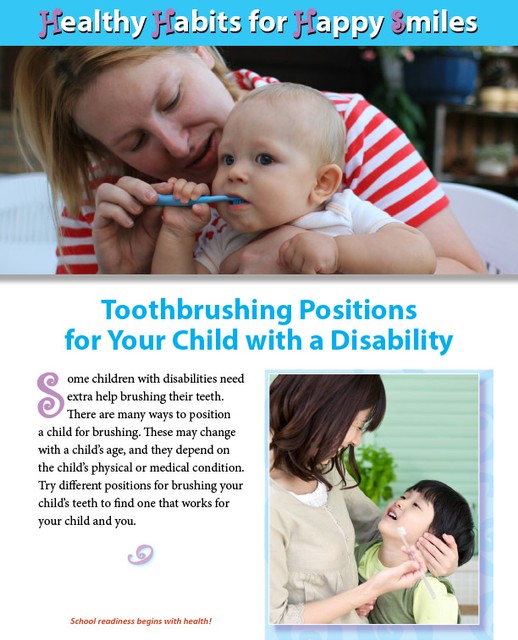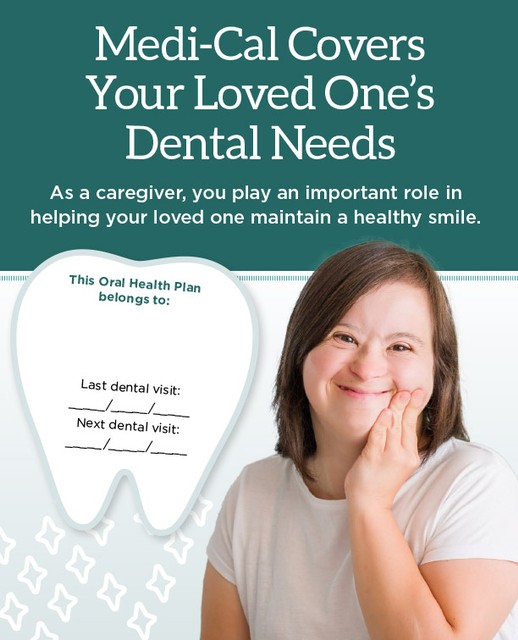Oral Health Across the Lifespan
Pregnancy
Maintaining your teeth and gums healthy is one of the most important things you can do for yourself and your baby’s health during pregnancy. Oral Health care is safe throughout pregnancy. Regular brushing and flossing, eating a balanced diet and visiting your dentist regularly, will help reduce dental problems that often accompany pregnancy, such as:
- Cavities and tooth decay: vomiting exposes your teeth to stomach acids that can weaken your tooth enamel
- Periodontal disease: evidence suggests tooth infections can be a major risk factor for babies born too soon or with low birth weight
- Gingivitis: due to decreased immune response and hormonal fluctuations
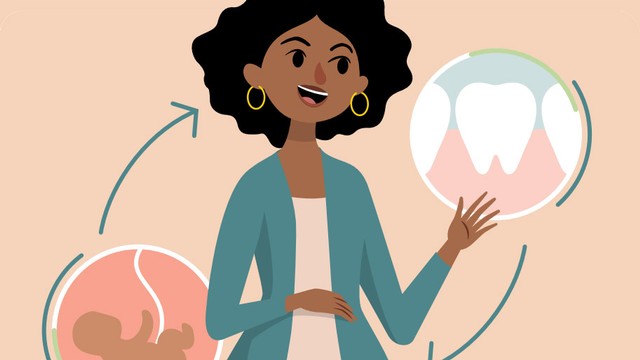
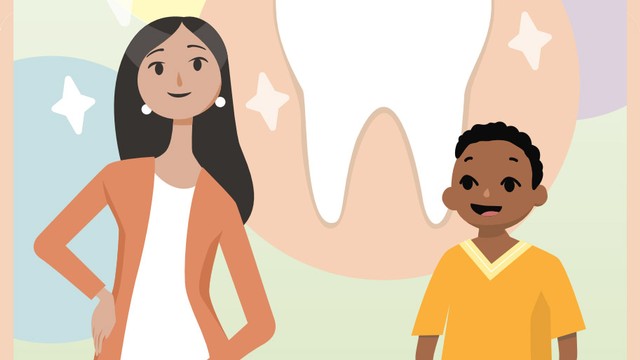
Babies (0-3)
Caring for you baby’s smile begin the moment they are born. Big smiles start with healthy gums. To keep your baby’s gums healthy, gently wipe them with a clean, moist washcloth after feeding. Once your baby gets their first tooth, it’s time to begin a brushing routine.
Use a rubber brush that fits over the pointer finger. These brushes are bacteria resistant when kept clean, and don’t require toothpaste and have small rubber bristles that can help gently clean your child’s tooth and gums.
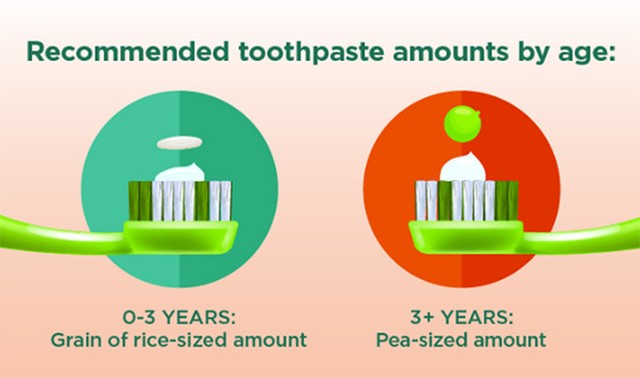
Once more baby teeth come in, start brushing their teeth as soon as they come in by using grain of rice-sized smear of fluoride toothpaste.
First Tooth, First Birthday, First Visit
Dental visits should start early to ensure healthy habits. Your baby’s first dental visit should take place as soon as their first tooth appears or by their first birthday, whichever comes first. Establishing a dental home is just as important as finding the right pediatrician.
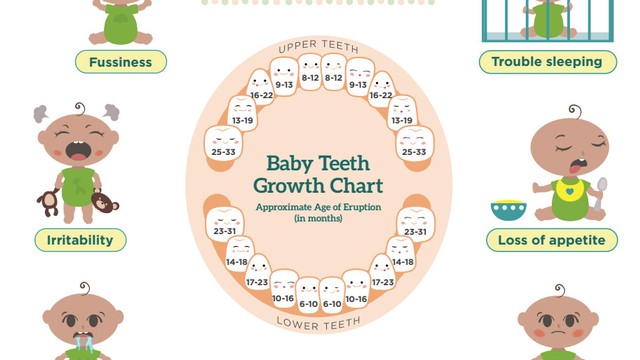
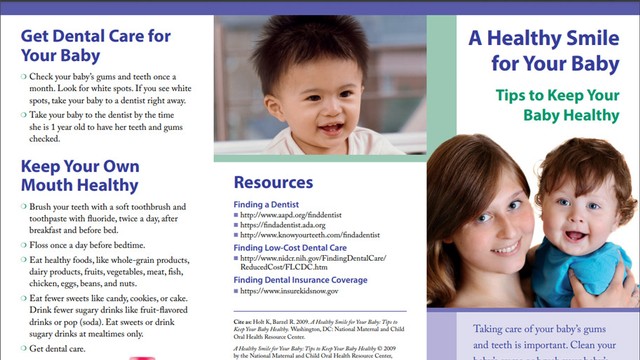
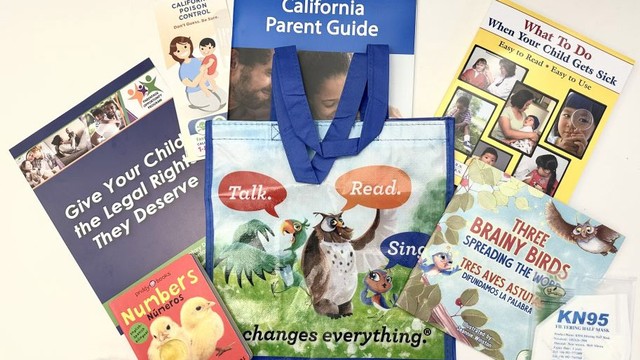
Kids 4-12
The best way to protect your child’s teeth against tooth decay is by developing good oral health habits.
Brush 2 times a day for 2 minutes - Creating good oral health habits like brushing twice a day is essential to healthy teeth. Always help young children under 8 brush and floss to ensure they are doing a good job. Remember, only a pea sized amount of toothpaste is needed for children 3+. Make sure your child spits out the toothpaste and does not swallow it.
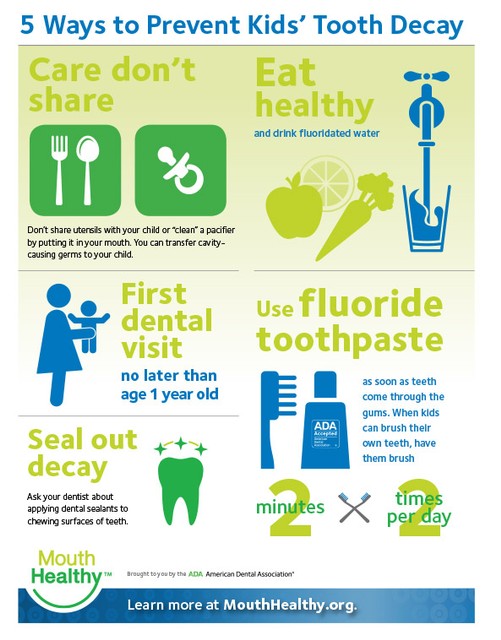
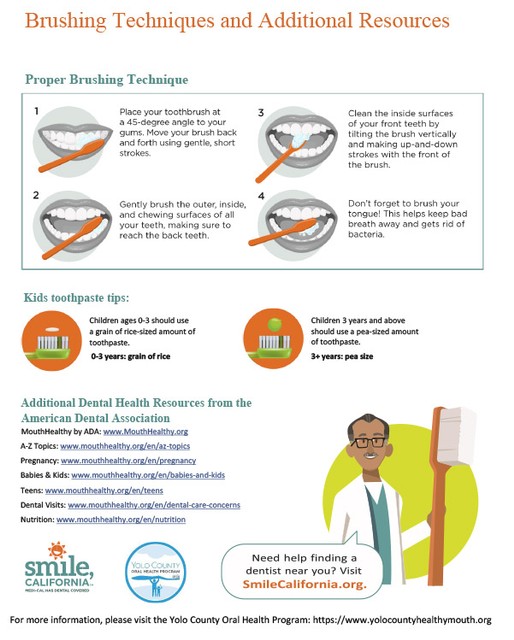
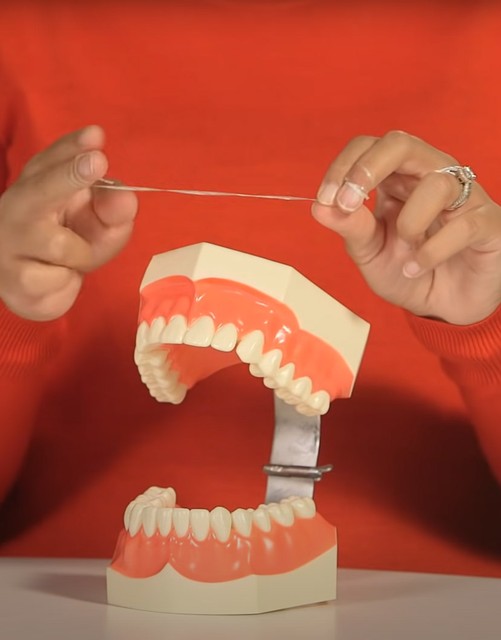
Kindergarten Oral Health Assessment (KOHA)
The Kindergarten Oral Health Assessment (KOHA) requirement was passed into law under the Education Code Section 49452.8 in 2005 by Assembly Bill 1433 (AB 1433). California state law requires children to receive a dental assessment by May 31st in either Kindergarten or first grade, whichever is their first year in public school. This helps ensure children receive the oral health care they need to be healthy and ready for school. The KOHA form is distributed when you register your child for school, or you can download the form below.
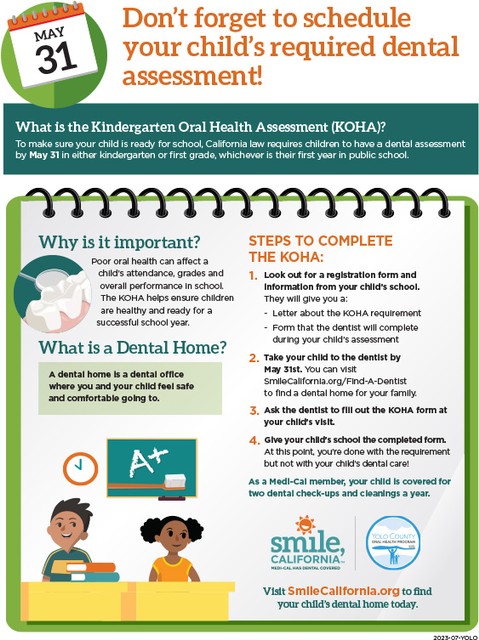
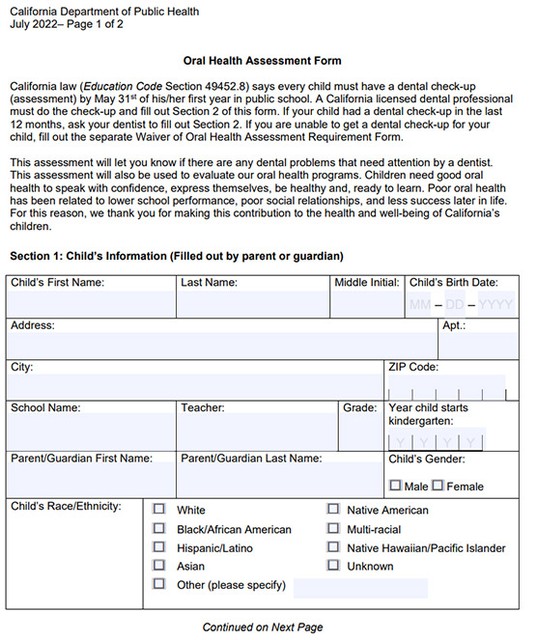
Molar Sealants
The best way to keep your child’s teeth healthy is by taking them to regular dental visits every six months. Molar sealants are a clear, protective coating applied to permanent molars to keep them protected from cavities. Dental sealants can prevent up to 80% of cavities in the back teeth.
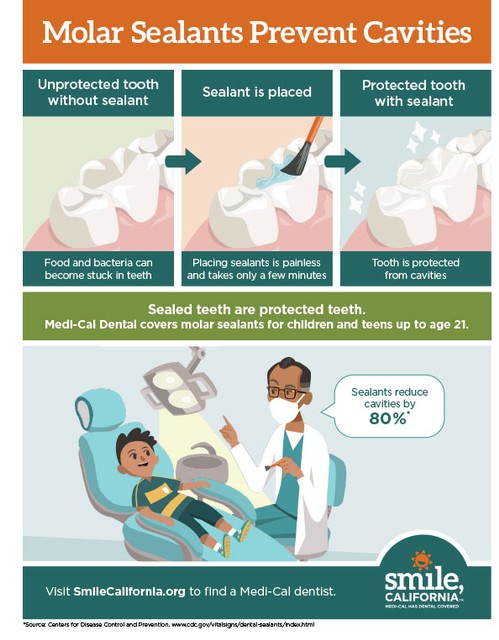
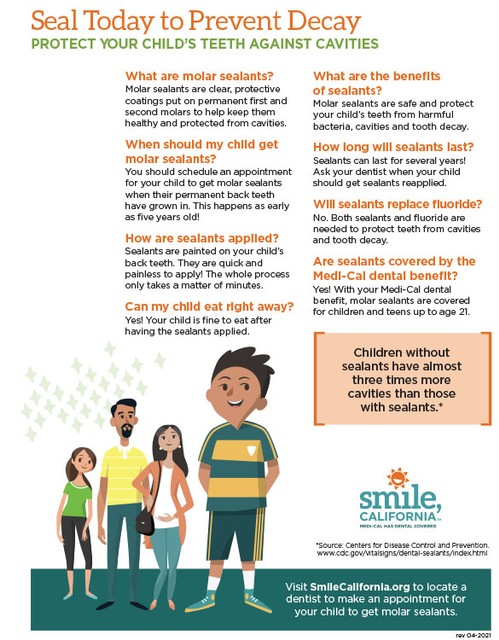
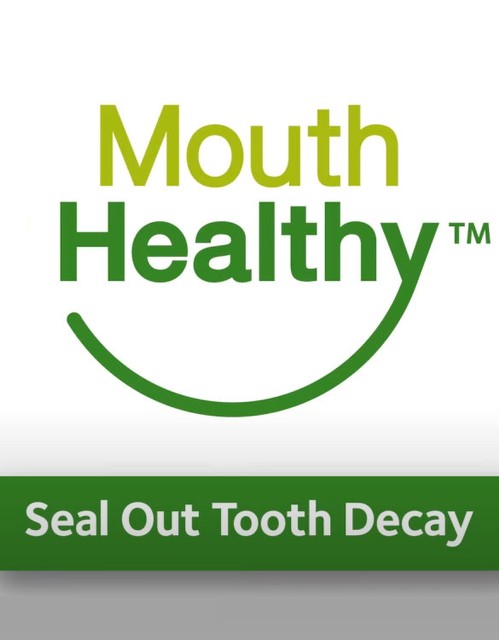
Fluoride – Young children require fluoride to help developing teeth grow strong and it helps prevent tooth decay in older children when used on a regular basis. Check and see if your community water is fluoridated. If it isn’t, choose bottled water that is fluoridated or talk to your dentist or pediatrician about fluoride supplements. Children should not use fluoride toothpaste or fluoride rinse till they are able to spit.
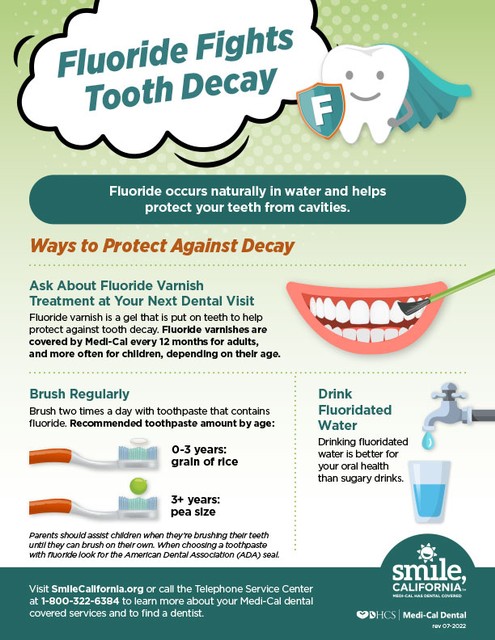
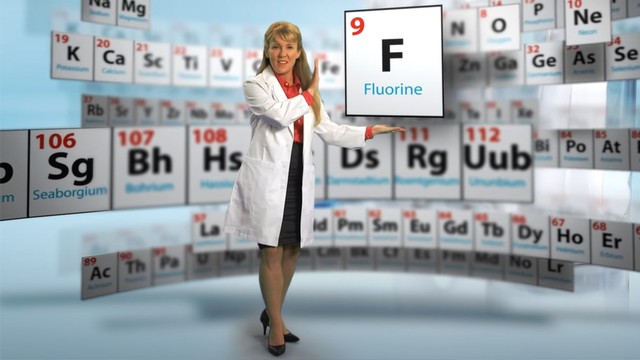
Healthy eating habits & Nutrition - Do not put juice or other sugary drinks in baby bottles. In fact, try to stick to water or milk. Good nutrition is an important key to a healthy mouth!
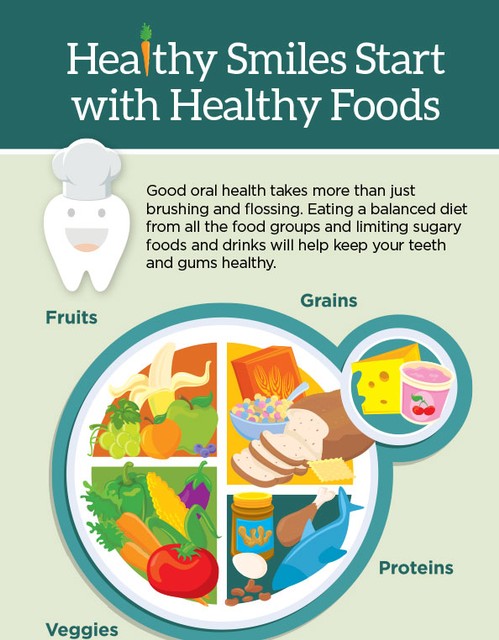
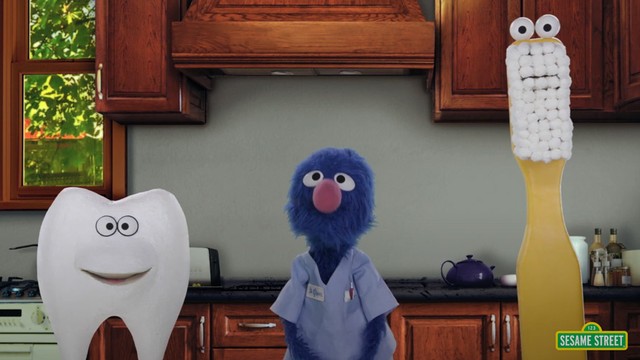
Teens (13-17)
Wisdom teeth usually appear during this time, completing the set of permanent teeth It is important for teens to continue regular dental check-ups as the dentist may recommend other services like orthodontics (Braces).
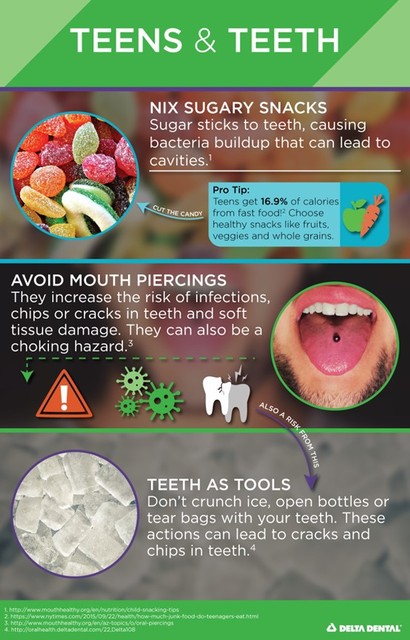
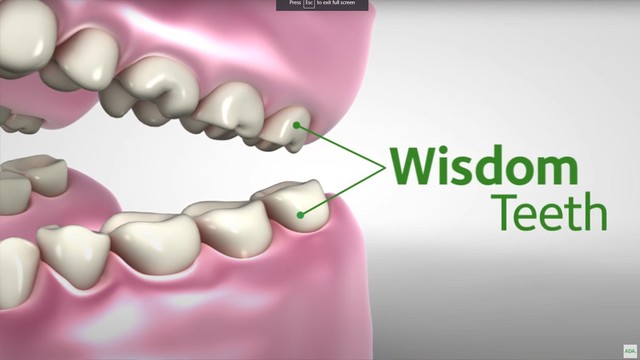
Adults
Good oral health becomes more important as you get older and can prevent tooth loss, decay, and gum disease. Regular dental visits can help you keep your gums and teeth strong.

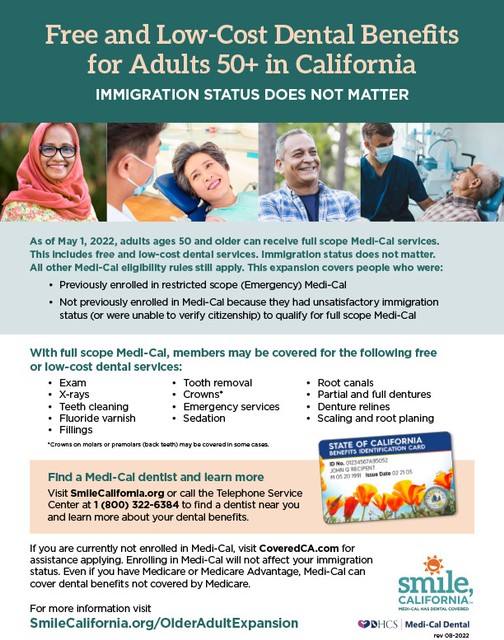
Older Adults 55+
Healthy teeth and gums are an important part of our overall health no matter your age. Practicing good oral health habits can help you lower your risk for developing dental conditions like gum disease and cavities.
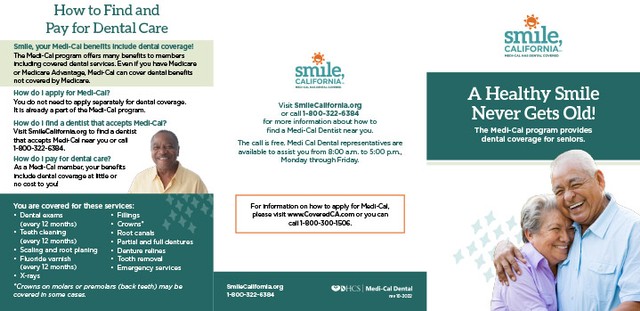
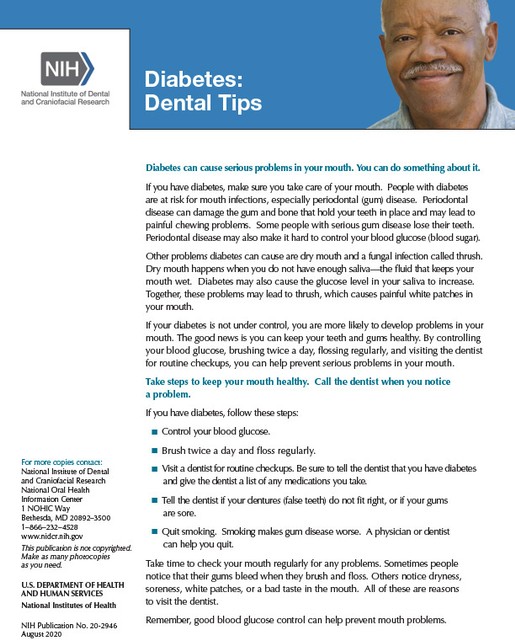
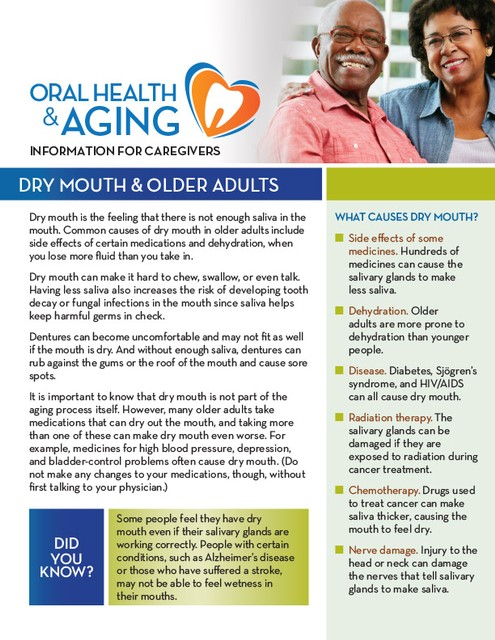
Individuals with Disabilities/Caregivers
Providing oral health care is especially important for individuals with disabilities and may require a different approach to maintaining good oral health. As a caregiver, you play an important role to help keep their teeth and gums healthy.
